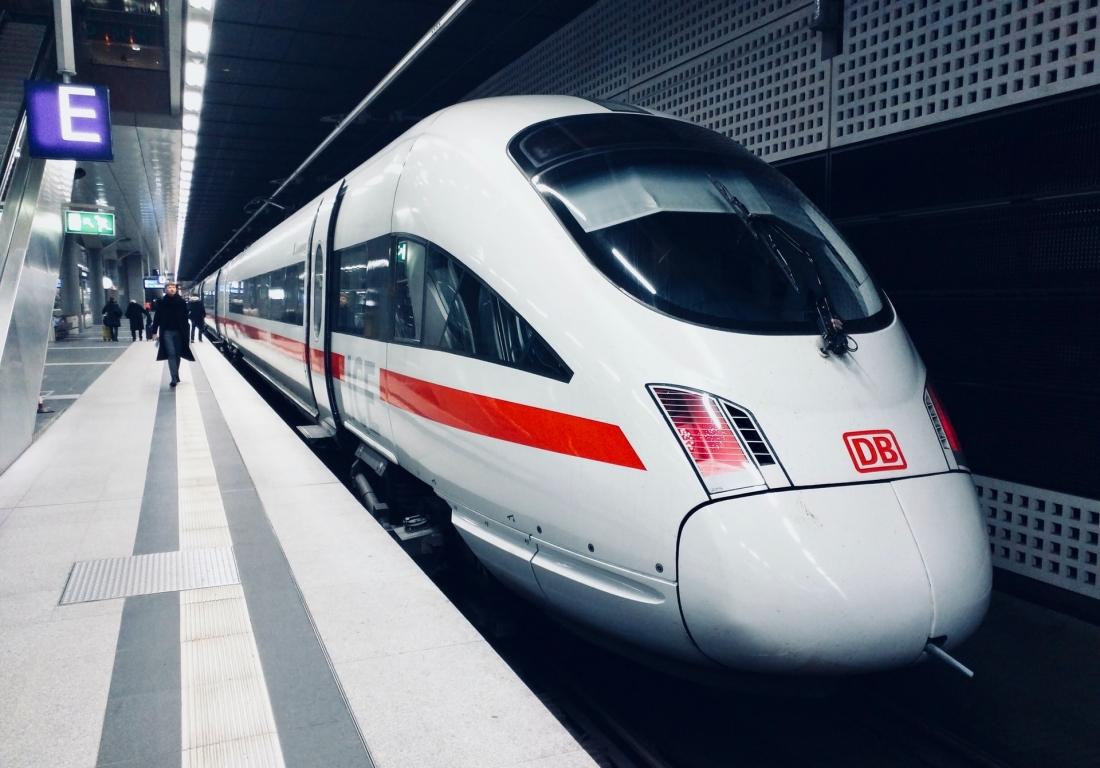industrialization angličtina
industrializace
Význam industrialization význam
Co v angličtině znamená industrialization?
industrialization
 Patnáct vět anglickyMáme naspěch | In a hurryTyhle věty vám přijdou v angličtině vhod, až budete pospíchat.
Patnáct vět anglickyMáme naspěch | In a hurryTyhle věty vám přijdou v angličtině vhod, až budete pospíchat.Překlad industrialization překlad
Jak z angličtiny přeložit industrialization?
industrialization angličtina » čeština
Synonyma Anglická synonyma
Která slova mají v angličtině podobný význam jako industrialization?
industrialization angličtina » angličtina
 Patnáct vět anglickyVlak | The trainS těmito anglickými větami se určitě neztratíte na nádraží kdekoliv na světě.
Patnáct vět anglickyVlak | The trainS těmito anglickými větami se určitě neztratíte na nádraží kdekoliv na světě.Příklady industrialization příklady
Jak se v angličtině používá industrialization?
Citáty z filmových titulků
The Federation Bureau of Industrialization may be of aid to you. I will tolerate absolutely no interference! You will not set foot here as long as I rule!
K extázi, utrpení, porušení pravidel, beznaději, k slavným prohrám i k slavným vítězstvím.
Doesn't the bear symbolize the old South and the new dog, the encroaching industrialization of the North?
Nesymbolizuje ten medvěd starý jih a mladý pes, vzrůstající industrializaci severu?
They loved it, because CO2 was for them an emblem of industrialization.
Milovali to, protože CO2 byl pro ně znakem industrializace.
Industrialization of Africa, Asia and Latin America could be blocked.
Industrializace Afriky, Asie a Latinské Ameriky by mohla být zablokována.
They're gonna claim that the world is overpopulated, that industrialization, industrial pollution, and overpopulation are the main problems that face the world.
Budou tvrdit, že je svět přelidněný, že industrializace, průmyslové znečištění a přelidněnost jsou hlavními problémy, kterým svět čelí.
And because they do not have the kind of industrialization that we have, they've been able to maintain this ancient and traditional culture and dress.
Jsi srandovní. A proto, že se nevyrábí továrně, si mohl uchovat starobylý a tradiční vzor.
How did Industrialization suddenly become imperialism?
Kdy se z industralizácie stal imperialismus?
It has been ticking for 150 years now, since the dawn of industrialization.
Tikaly už 150 let, od počátku industrializace.
This brings on industrialization which in turn, will bring up a working class and that working class will inevitably rise up and an organic communism will take effect.
To přináší industrializaci, která zase přináší dělnickou třídu a ta dělnická třída nakonec povstane a nastoupí komunismus.
The industrialization after the war. has damaged the land, the air, soil and man.
Industrializacepoválce zničila tuto zemi, vzduch, půdu a lid.
Would you give up all that industrialization, would you give up all the productivity that it's brought us, all the lives that it has saved over the last 100 years, so that the temperature wouldn't rise half a percent or a milli percent?
Vzdali byste se průmyslu, a všech produktů, které nám za posledních 100 let pomohl vybudovat jen kvůli tomu, že teplota vzrostla ani ne o půl procenta?
He saw a godfearing society turning towards complete industrialization.
Viděl bohabojnou společnost, jak se úplně obrátila k industrializaci.
Citáty ze zpravodajství a publicistiky
China and India claim the right to proceed with industrialization and development as the developed nations did, unhampered by limits on their greenhouse gas emissions.
Čína a Indie si nárokují právo pokračovat s industrializací a rozvojem tak jako v minulosti vyspělé země, neomezované limity emisí skleníkových plynů.
This predilection harkens back to the Great Leap Forward of the 1950s, when scrap metal was melted to meet wildly optimistic steel-production targets, thereby advancing Mao's dream of rapid industrialization.
Tíhnutí k těmto dvěma sektorům sahá až k politice Velkého skoku vpřed v 50. letech minulého století, kdy se tavil železný šrot, aby se splnily přehnaně optimistické cíle produkce oceli, a tím se realizoval Maův sen o rychlé industrializaci.
Clearly, industrialization and export expansion alone cannot absorb China's massive labor force.
Je zřejmé, že industrializace a zvyšování exportu nemohou samy o sobě absorbovat početnou pracovní sílu v Číně.
For China, today's increasing growth rates are sustainable if China continues to open its economy to competition with the world while ruthlessly excising the legacy of socialist industrialization.
Dnešní tempo růstu je pro Čínu udržitelné v případě, že bude dále otevírat své hospodářství konkurenci celého světa a bude přitom nemilosrdně mýtit dědictví socialistické industrializace.
China may come to rue the wanton eagerness with which it has embraced industrialization.
Čína může začít litovat bezohledné dychtivosti, s níž přijala industrializaci.
The harshness of the subsequent industrialization campaign culminated in the Great Leap Forward of 1958-60, producing a famine that killed 30 million people, mostly in rural areas.
Krutost následující industrializační kampaně vyvrcholila tzv. Velkým skokem vpřed v letech 1958-60, jehož důsledkem byl hladomor, kterému podlehlo na třicet milionů lidí, především ve venkovských oblastech.
It can generate sustainable growth through industrialization, and by creating a single market.
Industrializací a vytvořením jednotného trhu si může zajistit udržitelný růst.
England was a pioneer in industrialization, and was deeply shocked by the presumption of newcomers who soon entered the same stage.
Anglie byla průkopníkem industrializace a hluboce ji šokovala opovážlivost nováčků, již brzy dosáhli stejné úrovně.
By the early 20th century, Germans had concluded that Russia's faster demographic growth and rapid industrialization posed a military threat.
Na začátku 20. století už Němci soudili, že rychlejší demografický růst Ruska a jeho překotná industrializace představují vojenskou hrozbu.
Economist Simon Kuznets proposed the existence of a sharp rise in inequality upon industrialization, followed by a decline to social-democratic levels.
Ekonom Simon Kuznets předpokládal existenci prudkého růstu nerovnosti po nástupu industrializace, po němž má následovat pokles na sociálně-demokratickou úroveň.
China found it useful to run a large trade surplus, using a very high rate of internal savings and inward foreign investment to support its industrialization and rapid growth.
Pro Čínu bylo výhodné udržovat obří obchodní přebytek pomocí velmi vysoké míry domácích úspor a přicházejících zahraničních investic podporujících tamní industrializaci a svižný růst.
All this means that the process of industrialization in China still has a long way to go.
To vše znamená, že proces industrializace má před sebou v Číně ještě dlouhou cestu.
During this long process of industrialization, wages will increase gradually, but it is very unlikely that they will grow at the same rate as labor productivity.
Během tohoto dlouhého procesu industrializace se budou mzdy postupně zvyšovat, ale je velice nepravděpodobné, že by rostly stejným tempem jako produktivita práce.
At the same time, major shifts began occurring in the Third World, and accelerated in the post-war decades: independence in India, liberation in China, decolonization in Asia and Africa, nation building and industrialization in Latin America.
Ve třetím světě začalo ve stejné době docházet k významným změnám, kterých v poválečném období dále přibývalo: nezávislost Indie, osvobození Číny, dekolonizace Asie a Afriky, vznik států a industrializace v Latinské Americe.
 Patnáct vět anglickyOtázky | QuestionsTěchto patnáct vět vám v angličtině pomůže s kladením otázek a s odpovídáním na ně.
Patnáct vět anglickyOtázky | QuestionsTěchto patnáct vět vám v angličtině pomůže s kladením otázek a s odpovídáním na ně.